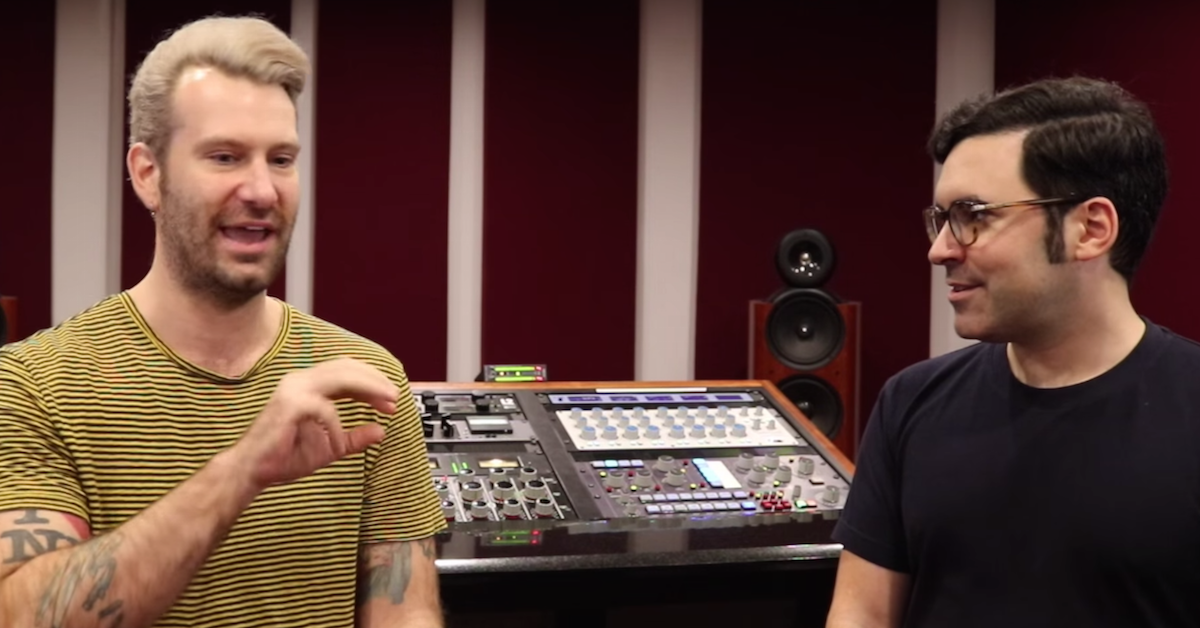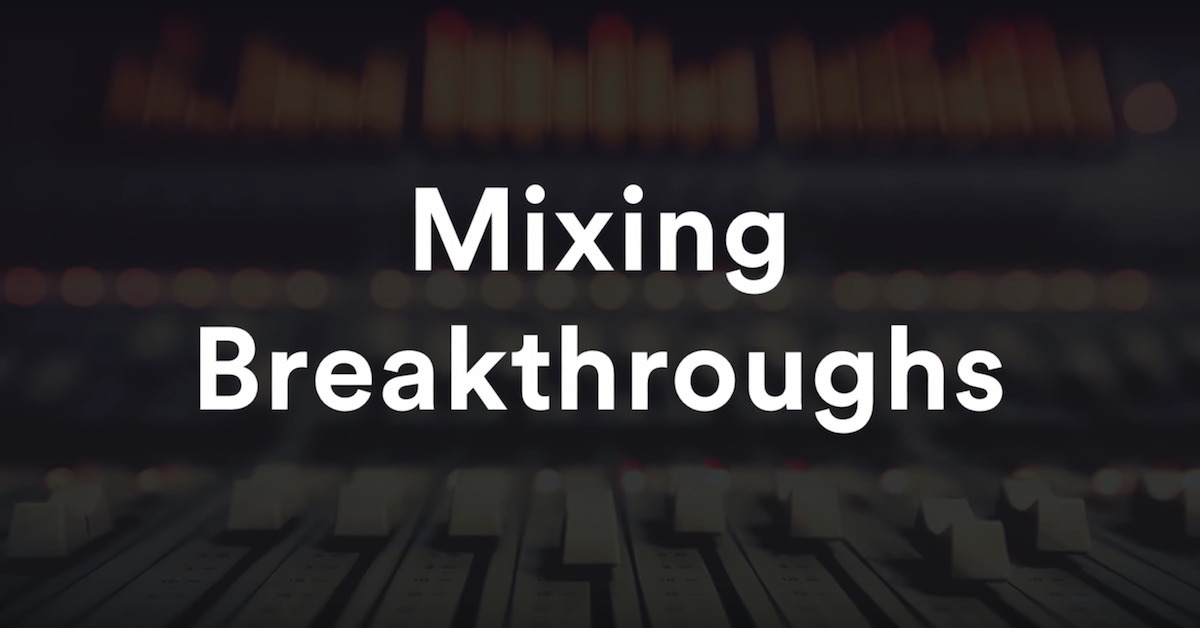Justin Frankel Interview (Creator of the Reaper DAW)
It is not often that you get to put a face on a DAW. We’re going to do that by interviewing Justin Frankel, who is one of the creators of Reaper. Or are you THE creator?
Justin: I am the original creator, but whatever.
David: Well, the first thing that I want to ask you about is when did you discover that you had a talent for coding?
Justin: Um, I think when I was in high school, I started programming for fun, and the first sort of really validating experience was writing software for other students to use in school.
At the time, this was back in the 90’s, we had a Novell network that all the students could sort of use to run Word Perfect 5.1 for DOS and things like that, and one of the projects I made was an e-mail program that we could all use to send e-mail from students to students within the school, and producing that and getting feedback from other students as users was a very rewarding experience for me.
David: Yeah. Now, were you a musician too at the time? Justin: Not in high school, no, I didn’t really get interested in playing music until about 2001.
David: Okay, alright, but something important happened for you musically before 2001, which was in the late 90’s, Justin and a partner of his, or a couple of partners, right?
Justin: Well, I wrote software called “WinAmp” in the 90’s, and then in 1999, at the peak of the dot com boom, sold it to AOL, and so I worked for AOL. WinAmp was one of the earliest mp3 players, and so I worked at AOL for about five years on that.
Then when I left, I developed an interest in making music as opposed to just listening to it, and so then, that’s how Reaper came about to be.
David: Right. I want to flashback for a second with WinAmp. When you originally designed it, and for those who don’t know, or remember, WinAmp was a big deal when it came out, because it was a really easy to use media player. It was something that everybody needed, and what action inspired you to create WinAmp at the time?
Justin: Um, there was — there were other mp3 players out for Windows, but none of them sort of had the things that I really wanted to use, like the ability to do playlists, the ability to visualize music as you’re listening to it. Things like that.
David: Right, right. Justin: So it was really about the experience and about having it be something you want to use and have it be an interactive thing instead of just simply playing back mp3 files. It was more about doing more things with that. Things that we take for granted today, but at that point, it was a new thing.
David: When WinAmp was acquired, that was a multi-million dollar deal with AOL. Big stock deal. You got absorbed into AOL for awhile, for a few years.
What were your takeaways, both good and bad from that whole experience? From being acquired? From getting sucked up into a big company.
Justin: Not to be pejorative, but I went to college for less than a year before I left and made WinAmp, and so I look at AOL as sort of my college years in terms of learning a lot about working with other people and working in a big company, and when I left, I came away from it wanting to avoid that in the future. Wanting to just make things for the sake of making them and not have to make them — Not have to constantly justify everything with business decisions, or with business motivation.
So the ability to just make software for the purpose of making it, and for the end goal of making something that’s really powerful and enjoyable to use, and not having to sort of go and think about monetization and all of these things. That was sort of where I came away from them.
David: Did the creation software feel like an expression to you?
Justin: Yeah, I mean, you have discussions with people about what makes art, art, versus — is carpentry art? In many instances it is, but the question of function is an issue, but things that are art are not supposed to have function, but personally, I think things can have function and be art. It’s things you craft and try to make them the nicest, most beautiful thing that you can, and so for me, yeah, it’s — programming, writing software is really like an artform.
David: So then, in 2004 is when you started working on Reaper in earnest, right? And then in 2005, it was released as Freeware.
Justin: Uh, 2005 I started it. Before that, I did some other experiments with guitar effects processing and things like that, and at that time, I was doing recording, using software like Logic, and Vegas.
Then I sort of got a little bit frustrated with the way that things were done with them, so I kind of started working on something — a tool for my own use.
David: Right. I think it’s very interesting that frustration is often the core invention. It’s the necessity is the mother of invention, but it seems like frustration often is as well.
In what way were those DAWs frustrating you and how did you resolve to do it better with Reaper?
Justin: Well, I started using Logic and the thing about Logic was that it was incredibly powerful, but there were all of these things happening behind the scenes that I could never figure out what was happening, so things — you would set it up and things would work, and you’d want to change something, and it was just very difficult to figure out how you could do that.
You would try things and they wouldn’t have the effect you thought they would and things like that.
So on the very basic level, it met the needs, but then it also just sort of failed me as I tried to do more complex things. Then I started using Vegas, which was made by Sonic Foundry at the time, and since, Sony bought it.
It actually — I really like Vegas, and it was a big influence of how Reaper initially functioned, but Vegas became more of a video editor than an audio editor, and it never — it may by this point, but it didn’t have MIDI support, it didn’t have virtual instrument support. It was really about using it as a tape machine.
So that sort of became a limitation that I was interested in doing other things with, and they had Acid at the time, which was a separate composition tool, which you know, using both of those is not really the best workflow probably.
David: Right.
Justin: It wasn’t for me anyway. So Vegas ended up influencing a lot of what I did after that.
David: So now switching gears here, what advice do you have for young entrepreneurs that might be seeing this, they want to make a dent in audio. What do you want them to know about going for it? Justin: I would say that if you have something that you want, and you can’t find something to do what it is you want, then you should make it. That’s the biggest — the biggest, the thing is figuring out what it is you want, and if you can do that and you can figure out a way to make it or approximate what it is you want, then you’re in good shape, because probably there would be some other people out there like you who would share the same desire.
David: Right. So it’s really that simple.
Justin: That’s the way I operate, anyway. I’m sure there are many examples that are counter to that, but that’s the way I — that’s the way I roll.
David: Is that what you were thinking when you put together WinAmp? Justin: Yeah, WinAmp wasn’t supposed to be — the fact that I sold it to AOL was just this random luck. There was no point in my writing of it where I was like, “Oh, yeah, this is going to be huge.” Never, never occurred to me, and it never — it was never something I really wanted, it was more of just an opportunity that I stumbled into.
David: Who are some other innovators out there, whether we’re talking music or anything else who you admire from the present or the past?
Justin: I always was a big fan of John Carmack, who was the main programmer at ID Software where they made Doom and Quake and Wolfenstein and all of these games that — he’s always been someone I’ve looked to as someone who’s making excellent code and also sort of being successful doing that. Though in a very different way.
David: Give me one more.
Justin: Uh, okay, here’s one for you, Monty from Xiph.org. However you pronounce that. He developed Vorbis and they have a new codec called Opus, which actually Reaper supports as well.
He’s always been someone who’s just so — such a positive contribution to technology and the culture of technology that I’ve been always impressed with.
He also has an interesting take talking about high sample rates and whether or not they’re actually meaningful.
Though it focuses more on for listening to music as opposed to recording music, which are obviously very different requirements, but it’s — yeah, he’s someone whose been very influential.
David: How do you filter out what is important and what is not when it comes to recording good audio? Justin: How do I personally or how does one? Because I have a very low standard. Like, I produce songs and I spend maybe a half hour on them, and then I’m like, “Alright, I’m done,” but a lot of people, most people spend a lot more time, and have a much better attention to detail when it comes to recording than I do.
But having said that, I think what’s important is ultimately where you end up, and if you find yourself up against certain issues, like the sound of a room, and you can’t get past that, then that’s probably something that’s important, and if you end up making something that you really like, and the drums were recorded in a terrible sounding room, but the end result is that it all works, then everything is good.
That’s my take.
David: Amen. I agree with that. So here is my last questions for you, Justin, which is if you could record anyone living or dead using Reaper, who would it be?
Justin: I would — I mean, because then that means that you also get to see them play, right? So I would definitely go — I’d probably go with Led Zeppelin.
David: Wow. I would like to see that too. They would sound good in this room, let me tell you. John Bonham would feel right at home.
Alright, Justin, we’ve been pretty comprehensive. Anything else you want to bring up?
Justin: Nope. It’s been a pleasure!
David: Alright, well thanks Justin, thanks to all of you for listening in on this edition of Sonic Scoop on video, so we’ll see you out there! Remember what Reaper looks like. That’s the man, Justin. Thanks again, and we’ll see you all soon!






